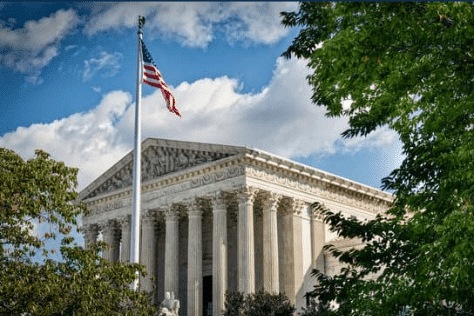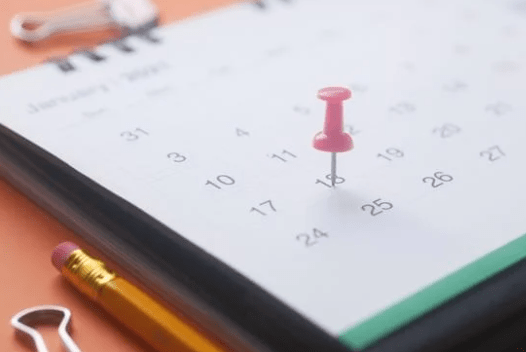
Table Of Contents
What Bufkin v. Collins Means for the “Benefit of the Doubt” Rule in VA Claims
The March 2025 U.S. Supreme Court (SCOTUS) ruling in Bufkin v. Collins (previously Bufkin v. McDonough) seems somewhat dry and technical, and likely attracted little attention from the public. But for disabled veterans, the ruling could mean a tougher battle when appealing a negative VA disability determination.
Here’s what you need to know about the benefit of the doubt rule, how it was applied in the past, how Bufkin changes that, and how it may impact access to VA disability compensation for some veterans.
What is the Benefit of the Doubt Rule?
38 U.S.C. §5107(b) directs that in the assessment of a claim for VA benefits:
When there is an approximate balance of positive and negative evidence regarding any issue material to the determination of a matter, the Secretary shall give the benefit of the doubt to the claimant.
In simple terms that means that in making a determination on a VA disability benefits claim, a tie goes to the veteran.
The benefit of the doubt rule itself hasn’t changed. What the Bufkin ruling changed was how The U.S. Court of Appeals for Veterans Claims (Veterans Court) treats the question of whether there is an “approximate balance” of evidence if the veteran appeals the VA’s determination.
Questions of Fact v. Questions of Law
Appellate courts consider issues differently depending on whether they are questions of law or questions of fact. That includes the Veterans Court.
If the question is one of law, the appellate court reviews the issue de novo, which means that the court can start from scratch and make its own determination on the issue. However, if the question is one of fact, the appellate court must give deference to the findings of the original decision-maker. In the case of a VA disability claim appeal, that decision-maker is the VA.
For simplicity’s sake, we’ll start with a non-VA related example. Imagine that someone is charged with the crime of battery based on an allegation that they punched another person. The question as to whether or not they punched the other person is a question of fact. The question of whether that act constituted battery under the state’s battery statute is a question of law.
Questions of Fact in the VA Disability Process
Some questions of fact in a VA disability case might include:
- Did the condition start during the veteran’s military service?
- Did the veteran serve in a particular location during a particular time?
- Did the veteran work in a particular role during their military service?
- Does the veteran have a diagnosis of the claimed medical condition?
- Does the evidence show that the veteran has a specific limitation or symptom, such as limited range of motion in a certain degree or impairment of occupational function?
These questions don’t require any particular legal knowledge or expertise to answer.
What are Questions of Law?
Questions of law are questions that require analysis of a legal standard. These include questions like:
- Is the veteran entitled to a presumptive service connection for the medical condition?
- Did the VA follow the proper procedures in considering the veteran’s claim?
- What is the legal meaning of a term in a law or regulation?
What Did the Bufkin Ruling Say?
38 U.S.C. 7261(b)(1) requires the Veterans Court to “take due account of the Secretary’s application of section 5107(b) of this title.” That statutory citation refers to the benefit of the doubt rule.
The question SCOTUS answered in Bufkin was what it means for the court to “take due account” of the benefit of the doubt rule. The high court concluded that whether or not the evidence was in approximate balance was a question of fact, not a question of law. That means that rather than reviewing the issue from scratch, the Veterans Court must give deference to the conclusion reached by the VA.
For the disabled veteran seeking VA disability compensation, that means a higher bar to overcome a denial, insufficient VA disability rating, or other issue. Now, rather than simply arguing and presenting evidence that the evidence was approximately in balance, the veteran would have to show that the VA clearly erred.
What Will This Mean for Disabled Veterans?
This ruling means veterans will face a tougher battle if they have to appeal to the Veterans Court where the benefit of the doubt rule played or should have played a role in the decision on their claim. But a veteran seeking VA disability compensation can start protecting themself much earlier than that.
Knowing that the battle will be harder and chances of winning on appeal lower, it is all the more important that a veteran’s initial claim and any administrative appeals be as strong and well-documented as possible. A veteran can minimize the chances of ever coming up against this new construction of the Veterans Court’s assessment of the benefit of the doubt rule by:
- Getting help from an experienced VA disability benefits advocate from the start, before they submit their claim
- Providing as much evidence as possible–more than they may think is necessary–in order to tip the evidence scales and avoid the need for the benefit of the doubt rule
- Building the strongest possible record during at the administrative appeal stage
If a Veterans Court appeal is required, the veteran may have to adjust the focus of their issues on appeal to areas where they can identify clear errors on the part of the VA or questions of law where the court will have broader discretion to override the VA’s determination.
Get the Right Help With Your VA Disability Claim
The best time to talk to an experienced VA disability benefits advocate is before you take any action. If you have already filed a claim, you should contact an advocate as soon as you receive a request for additional information, a negative determination, or see any other signs of trouble.
At Veterans Help Group, our advocates have deep knowledge of the VA claims and appeals processes and are fully dedicated to fighting for disabled veterans and their families. Call us today at 855-855-8992 or fill out our contact form here.
Disabled Veteran Resources:

Why Veterans Help Group Is One of the Best VA Disability Firms for Veterans
Why Veterans Help Group Is One of the Best VA Disability Firms for Veterans When veterans begin...

More Care, More Perks, Fewer Staff: Inside the VA’s Ambitious 2026 Budget
More Care, More Perks, Fewer Staff: Inside the VA’s Ambitious 2026 Budget The U.S. House of...

PTSD and Veterans: Understanding the 100% Disability Rating Requirements
PTSD and Veterans: Understanding the 100% Disability Rating Requirements Post-traumatic stress...





